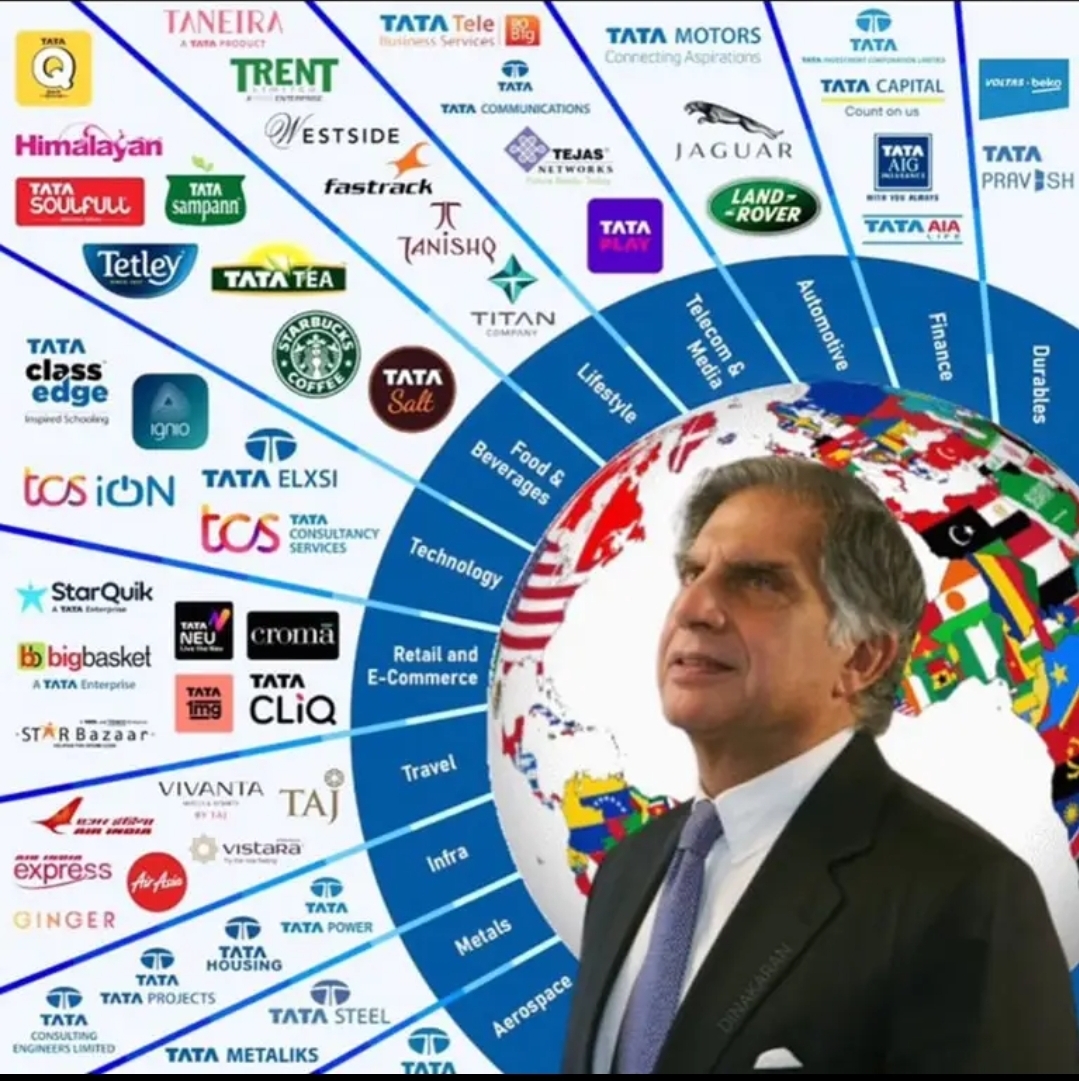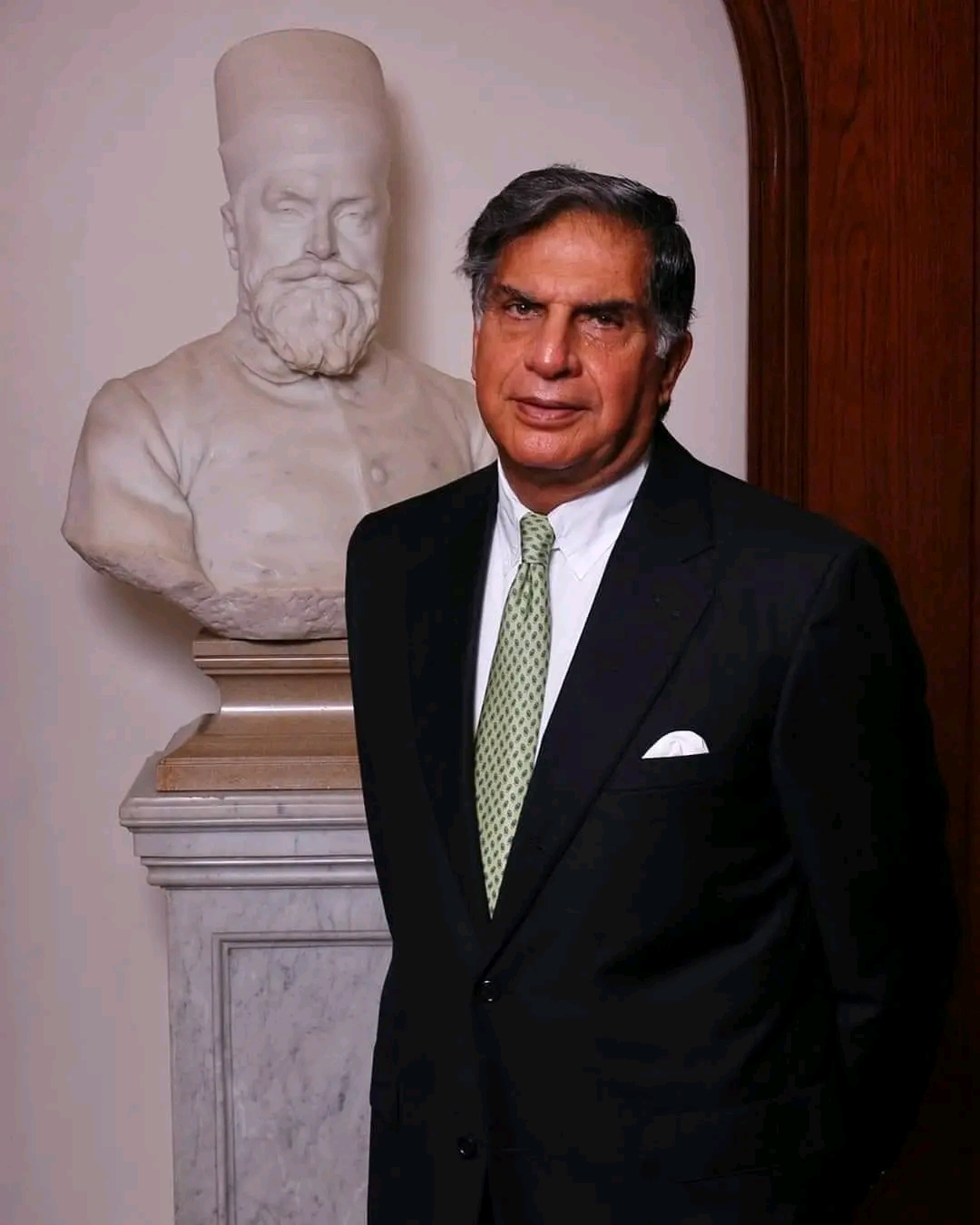Ratan Tata Passes Away at 86: A Titan of Indian Industry Bids Farewell

Mumbai, October 9, 2024: The Indian business world mourns the passing of Ratan Tata, one of the most iconic industrialists in the country. At the age of 86, Ratan Tata passed away in Mumbai, where he was receiving treatment in the hospital’s intensive care unit. His death was confirmed by a statement from Tata Group, marking the end of an era for the conglomerate and the nation.
Ratan Tata’s passing is not only a personal loss for his family but also a deep loss for India. As the chairman emeritus of Tata Sons, Ratan Tata led the group through critical transformations and innovations, leaving an indelible mark on the global business landscape. His humility, leadership, and philanthropic spirit made him a revered figure both in India and internationally.
Early Concerns and Hospitalization
Earlier in the week, Ratan Tata had assured the public via his social media channels that his hospital stay was merely routine, linked to his age and general health conditions. He had remained in good spirits, stating that there was no cause for alarm. However, his condition worsened on Wednesday, leading to his admission into critical care, where he ultimately passed away.
A representative from Tata Group did not provide further details, though it was known that Tata had been facing health challenges in recent months.
Legacy of Leadership and Vision

Ratan Tata’s leadership of Tata Sons transformed the group into a global powerhouse. He played a pivotal role in expanding the company’s reach through iconic acquisitions such as Jaguar Land Rover and Corus Steel, placing Tata Group on the global stage. His visionary approach to business combined ethics, social responsibility, and long-term growth, which made him stand apart as a leader.
Under his stewardship, the Tata Group diversified into sectors like technology, automotive, and global hospitality, helping to redefine Indian industry. His tenure as chairman saw Tata Motors launch the revolutionary Tata Nano, aimed at making affordable cars available to the Indian middle class.

A Life Beyond Business: Philanthropy and Nation Building
Ratan Tata’s legacy extends far beyond the boardroom. His commitment to philanthropy and nation-building left an indelible mark on Indian society. The Tata Trusts, under his guidance, donated millions to causes related to education, healthcare, and rural development. Even in his later years, Tata remained actively engaged in charitable initiatives, earning him respect as a business leader with a heart.
Notably, Tata’s contributions during the COVID-19 pandemic underscored his commitment to social welfare, with the group pledging significant financial support for healthcare infrastructure and vaccine research.

Tributes Pour In for a Business Legend
Following the news of his passing, tributes have poured in from political leaders, business tycoons, and global organizations. Prime Minister Narendra Modi tweeted, “Ratan Tata’s contributions to India’s development and his unwavering commitment to the nation will be remembered forever. His legacy is one of inspiration, and his spirit of giving will continue to guide future generations.”
Industrialists across the globe have lauded Ratan Tata for his ability to balance corporate responsibility with entrepreneurial success, often pointing to him as a role model for ethical business practices.
A Lasting Legacy
Ratan Tata’s passing marks the end of an extraordinary life devoted to the growth and progress of India. His leadership of the Tata Group spanned decades, but it is his principles of humility, integrity, and service that have etched his name into the annals of history.
As the nation mourns his loss, his legacy continues through the generations of entrepreneurs, business leaders, and citizens he inspired. Ratan Tata’s influence on Indian industry and society will endure, and his vision for a better India will continue to shape the country’s future.
Legacy of Leadership and Vision
Ratan Tata’s leadership journey began when he took over the reins of the Tata Group in 1991. His visionary approach to business, combined with his ethical principles and a deep sense of social responsibility, transformed Tata Sons into a global conglomerate. Under his stewardship, Tata Group expanded its footprint, diversifying into new sectors and acquiring international companies that elevated its status on the world stage.
One of his most celebrated moves was the acquisition of Jaguar Land Rover in 2008, a move that not only saved the British luxury car brand but also solidified Tata Motors’ place in the global automotive industry. Another key acquisition during his tenure was Corus Steel, which helped Tata Steel become one of the largest steel producers in the world. These moves were a testament to Tata’s ambition of taking India to the global market and solidifying its reputation as a powerhouse in various industries.
Ratan Tata’s leadership was characterized by innovation, foresight, and a long-term growth strategy. He was responsible for the launch of the Tata Nano, the world’s most affordable car, aimed at providing India’s middle-class families with an economical means of transportation. Although the project faced challenges, it exemplified Tata’s commitment to innovation and improving the lives of ordinary Indians.
A Life Beyond Business: Philanthropy and Nation Building
Ratan Tata was more than just a businessman; he was a nation builder. His commitment to philanthropy was unwavering, and he believed in using wealth for the greater good. Under his leadership, the Tata Trusts became one of the largest charitable organizations in India, contributing to causes that spanned education, healthcare, rural development, and more.
One of Ratan Tata’s lasting legacies is his dedication to social welfare. During the COVID-19 pandemic, he led efforts to provide healthcare infrastructure, including hospital beds and ventilators, and support vaccine research. The Tata Trusts and Tata Group companies collectively pledged billions of rupees to combat the crisis, underscoring Tata’s deep-rooted belief in giving back to society.
He once said, “Businesses need to go beyond the interest of their companies to the communities they serve.” This quote reflects his broader vision for corporate social responsibility, which is now embedded in the DNA of the Tata Group.
Tributes Pour In for a Business Legend
The news of Ratan Tata’s passing has led to an outpouring of grief and tributes from all corners of the world. Indian Prime Minister Narendra Modi expressed his condolences on social media, stating, “Ratan Tata’s contributions to India’s development and his unwavering commitment to the nation will be remembered forever. His legacy is one of inspiration, and his spirit of giving will continue to guide future generations.”
Business leaders, industrialists, and global organizations have lauded Ratan Tata for his ability to balance corporate success with ethical leadership. Mukesh Ambani, chairman of Reliance Industries, called Tata “an inspiration to all of us,” while Bill Gates remarked that “the world has lost a giant who believed in making a difference.”
Across the globe, Ratan Tata is remembered for his calm demeanor, integrity, and the ability to lead without losing sight of human values. He set an example for other business leaders by placing ethics and social responsibility at the heart of his decision-making process.
The End of an Era
With Ratan Tata’s passing, India has lost not only a brilliant businessman but also a guiding force for ethical business practices. His journey from a shy young man entering the Tata family business to one of the most respected industrialists in the world is a testament to his determination, intelligence, and relentless pursuit of excellence.
Ratan Tata’s contribution to Indian industry cannot be overstated. He modernized and globalized the Tata Group, making it a brand recognized around the world. Yet, despite his enormous success, Tata remained humble, always putting people and principles above profits.
A Lasting Legacy
Ratan Tata’s impact on Indian society will continue to resonate for years to come. His leadership, characterized by humility, compassion, and integrity, has set the gold standard for ethical business practices. He has inspired countless entrepreneurs, business leaders, and citizens, showing that success is not just about financial gains but also about making a positive difference in the world.
As India and the world mourn his loss, Ratan Tata’s vision of a better, more equitable society will continue to guide the Tata Group and other organizations inspired by his legacy. He was a true titan of industry, a humanitarian, and a symbol of what it means to lead with integrity and purpose.
FAQ
1. What was Ratan Tata’s age at the time of his passing?
Ratan Tata passed away at the age of 86 on October 9, 2024.
2. What role did Ratan Tata play in the Tata Group?
Ratan Tata was the chairman emeritus of Tata Sons. He led the Tata Group from 1991 until 2012 and played a crucial role in expanding and transforming it into a global conglomerate.
3. What were Ratan Tata’s major achievements during his tenure?
Ratan Tata’s major achievements include the acquisition of Jaguar Land Rover and Corus Steel, and the launch of the Tata Nano, which aimed to provide affordable cars for the Indian middle class. Under his leadership, Tata Group diversified into various sectors, including technology, hospitality, and automotive industries.
4. How did Ratan Tata contribute to philanthropy?
Ratan Tata was a strong advocate of corporate social responsibility. Through the Tata Trusts, he donated millions to causes related to education, healthcare, rural development, and social welfare. During the COVID-19 pandemic, the Tata Group and Tata Trusts provided significant financial support to improve healthcare infrastructure and vaccine research.
5. How has Ratan Tata been remembered after his passing?
Ratan Tata has been remembered fondly by political leaders, business tycoons, and the general public. Prime Minister Narendra Modi and other global leaders praised him for his contributions to India’s growth, his ethical business practices, and his commitment to philanthropy.
6. What will Ratan Tata’s legacy be?
Ratan Tata’s legacy is one of visionary leadership, ethical business practices, and a deep commitment to philanthropy. His influence will continue to inspire entrepreneurs, business leaders, and citizens, and his values will guide future generations.

